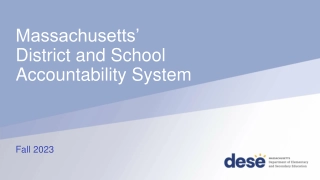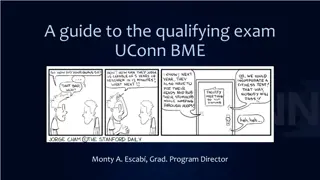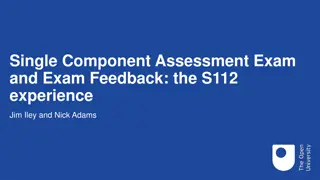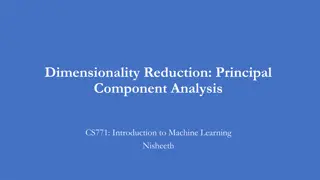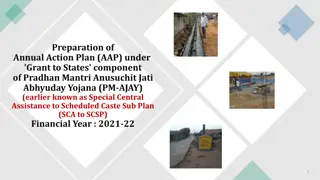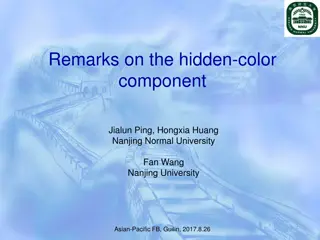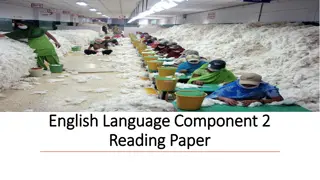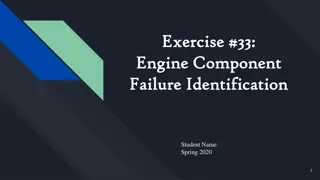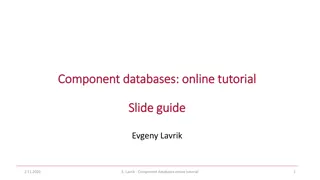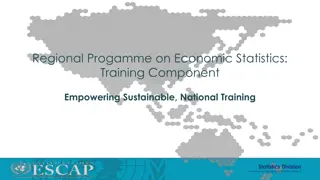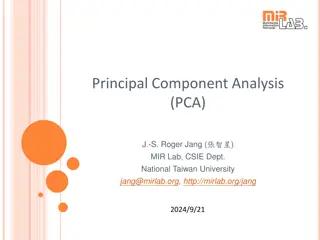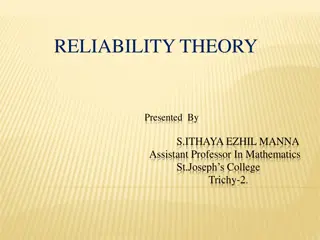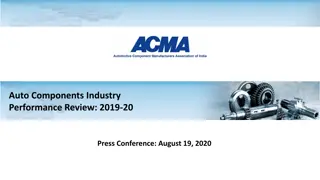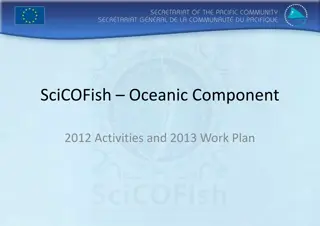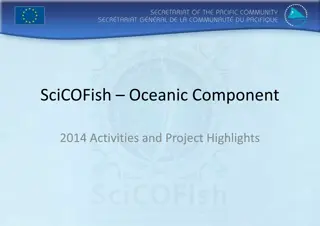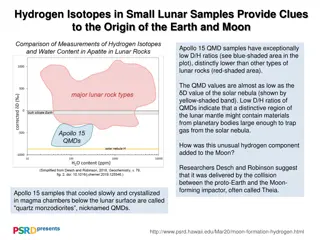Jaw Plates
When it comes to heavy-duty industrial machinery, one component that plays a critical role in ensuring efficient operation is the jaw plates. These plates serve as a vital component in various industries, including mining, construction, and recycling. In this blog post, we will explore the significa
0 views • 6 slides
The Importance of Jaw Plates in Industrial Applications
When it comes to heavy-duty industrial machinery, one component that plays a critical role in ensuring efficient operation is the jaw plates. These plates serve as a vital component in various industries, including mining, construction, and recycling. In this blog post, we will explore the significa
0 views • 6 slides
The Importance of Jaw Plates in Industrial Applications
When it comes to heavy-duty industrial machinery, one component that plays a critical role in ensuring efficient operation is the jaw plates. These plates serve as a vital component in various industries, including mining, construction, and recycling. In this blog post, we will explore the significa
0 views • 6 slides
Massachusetts District and School Accountability System Fall 2023
The Massachusetts District and School Accountability System for Fall 2023 includes various components such as Accountability Indicators, Normative Component, Criterion-Referenced Component, Assessment Participation, Categorization of Schools and Districts, and Reporting. It emphasizes measuring the
3 views • 32 slides
Driving Efficiency in Agriculture | Exploring the Global ISOBUS Component Market
According to BIS Research, the Global ISOBUS Component Market reached a valuation of $714.3 million in 2022. Over the forecast period 2023-2028, the market is projected to exhibit a CAGR of 10.49%, ultimately reaching a value of $1.28 billion by 2028.
3 views • 2 slides
Plasma Exchange in Treatment of PANS - Overview and Considerations
Plasmapheresis, a type of apheresis, plays a crucial role in managing Pediatric Acute-onset Neuropsychiatric Syndrome (PANS) and Pediatric Autoimmune Neuropsychiatric Disorders Associated with Streptococcal Infections (PANDAS). This treatment involves separating the extracellular component of blood
0 views • 26 slides
Guide to Qualifying Exam at UConn BME Program
This guide outlines the importance of the Qualifying Exam as a rite of passage and a critical assessment of skills in written/oral communication, research project design, critical thinking, and more. It details the exam format, rubric, timeline, and key dates, providing insights into the NIH-style W
1 views • 9 slides
Analysis of Single Component Assessment Exam Feedback for S112 Module
The assessment strategy for the S112 module involves a single exam component alongside several TMAs. Findings show little gaming of the system, with most students submitting assignments. Exam performance correlates with the number of assignments submitted. The outcome of the module seems to be affec
1 views • 27 slides
Enhancing Reading Skills in WJEC Eduqas GCSE English Language Component 2
This comprehensive guide focuses on improving reading skills in WJEC Eduqas GCSE English Language Component 2. It covers assessment objectives, key messages from the Principal Examiner, and strategies for interpreting information, analyzing text, and evaluating responses. It also provides tips on ap
3 views • 34 slides
Dimensionality Reduction and Principal Component Analysis
Dimensionality reduction techniques like Principal Component Analysis (PCA) help in transforming high-dimensional data into a lower-dimensional space, leading to efficient storage and better understanding of underlying patterns. By capturing maximum variance in the data, PCA learns projection direct
5 views • 16 slides
Preparation of Annual Action Plan under PM-AJAY for Financial Year 2021-22
The preparation of the Annual Action Plan (AAP) under the 'Grant to States' component of Pradhan Mantri Anusuchit Jati Abhyuday Yojana (PM-AJAY) for the financial year 2021-22 involves merging three centrally sponsored schemes to achieve holistic development based on identified needs. The proposed s
0 views • 45 slides
Guidelines for GCSE Component 3 Spoken Language NEA
Key requirements for GCSE Component 3 Spoken Language NEA involve delivering an individual formal presentation on a self-selected topic. Successful presentations focus on engaging topics chosen by candidates, involve prior discussion with teachers, include advanced preparation, and meet audience nee
0 views • 21 slides
Insights on the Hidden Color Component in Nuclear Physics
Introduction to the hidden color component in nuclear physics, discussing its definition, physical effects, and multiquark states like tetraquarks, pentaquarks, and dibaryons. Various models and ongoing debates on the role of hidden colors in multi-quark systems are explored. The concept of colorles
1 views • 42 slides
Insights on Cotton Mills and Workers' Conditions in English Language Component 2 Reading Paper
The reading section of English Language Component 2 paper delves into the conditions of workers, particularly young girls, in cotton mills. Robin Pagna's article sheds light on the harsh reality faced by these workers, while Friedrich Engels' text provides further insight into the detrimental effect
1 views • 22 slides
Cohesion and Coupling in Software Component Design
This content discusses the concepts of cohesion and coupling in software component design. It covers the importance of having high cohesion and low coupling in software systems to ensure better structure, ease of understanding, and maintainability. It also explores how design patterns such as Adapte
0 views • 30 slides
Laboratory-Based Component Process Study on Awareness, Courage, Love, and Social Connection
This study explores the importance of awareness, courage, love, and social connection in a laboratory-based component-process research paradigm. It delves into concepts such as vulnerable self-disclosure, responsiveness, and intimacy generation while emphasizing the role of therapeutic relationships
0 views • 32 slides
Engine Component Failure Identification in Spring 2020 - Common Tests and Real-world Examples
In this presentation, students are tasked with connecting common engine performance test results with real-world component failures. The slides include images and descriptions of various failures such as blown head gasket, worn piston rings, burned valves, damaged cylinder walls, and more. The goal
0 views • 13 slides
Analyzing Writer's Language Use in English Language GCSE Component 2
In English Language GCSE Component 2, students learn to analyze how writers use language. The learning objective focuses on commenting, explaining, and analyzing language use with relevant subject terminology. The exam assesses students on their ability to interpret and explain a writer's thoughts,
0 views • 12 slides
Summary Staging in Cancer Cases
Staging cancer cases is a critical process to determine the extent of the disease at diagnosis. Summary staging, including SEER Summary Stage 2000, categorizes cancer spread, combining clinical and pathologic data. Learn about primary staging systems, summary staging groups, and how cancer spreads l
0 views • 41 slides
Comprehensive Online Tutorial for Component Databases Management
Explore a detailed online tutorial covering various aspects of managing component databases, including finding information, setting up in a Docker environment, data definition interface, editing components and modules, and generating server/client web applications. Access documentation, docker setup
0 views • 33 slides
Introduction to Lichens: General Overview, Classification, and Economic Importance
Lichens are symbiotic organisms composed of fungi and algae, with the algal component synthesizing food while the fungal component provides structure. They have unique characteristics and are classified based on their fungal partner, thallus forms, and habitat. Ascolichens and Basidiolichens are two
0 views • 24 slides
Breakfast Meal Pattern and Menu Ideas for School Year 2013-2014
Explore the breakfast meal pattern, component requirements, and calorie ranges for the school year 2013-2014 as outlined by the Wyoming Department of Education. Understand the objectives, general requirements, and age-grade groups involved, along with the daily breakfast component requirements and t
0 views • 41 slides
Regional Programme on Economic Statistics Training Component
Empowering sustainable national statistical systems through the Regional Programme on Economic Statistics Training Component, which aims to strengthen capacity, enhance knowledge sharing, and improve economic statistics production in pilot countries like Cambodia, Nepal, and Laos. The project focuse
0 views • 16 slides
Enhancing Biodiversity Conservation in Priority Areas through BIOPAMA Action Component
BIOPAMA Action Component aims to improve biodiversity conservation in priority areas by funding on-ground actions, enhancing management of Conserved Areas, strengthening legal frameworks, and supporting local communities. With a budget of 21 million Euros, the initiative covers 79 ACP countries/6 re
0 views • 10 slides
Principal Component Analysis (PCA) in Data Analysis
Introduction to Principal Component Analysis (PCA) by J.-S. Roger Jang from MIR Lab, CSIE Dept., National Taiwan University. PCA is a method for reducing dataset dimensionality while preserving spatial characteristics. It has applications in line/plane fitting, face recognition, and machine learning
0 views • 23 slides
Component Design Basis Inspection (CDBI) Program Overview
The Component Design Basis Inspection (CDBI) program ensures plant components are maintained within their design basis and monitors their capability to perform essential functions. Insights reveal the inspection frequency, estimated hours, fees, team composition, and inspection schedule. The baselin
0 views • 18 slides
Form Component Security Update Instructions
In response to a security exploit, a new version of the Form component has been released with updated Google reCAPTCHA and email submission system. Follow the detailed instructions to validate and configure your forms correctly based on the identified categories - Correctly configured, Partially cor
0 views • 4 slides
Value for Money Scorecard Criteria and Scoring Framework
This content outlines the Value for Money (VfM) scorecard criteria and approach to scoring projects based on six components: Relevance, Effectiveness, Efficiency, Sustainability, Economy, and Cost-Effectiveness, and Equity. Each component is ranked on a scale from 1 to 5, with a project offering exc
0 views • 5 slides
Challenges in Managing O- Red Cell Component Blood Supply
Addressing the challenges of managing O- red cell component blood supply involves considerations such as compatibility rules, absolute and relative indications, EBA benchmark comparisons, data monitoring, case studies, D variant specifications, and recommendations for transfusions. The supply side c
0 views • 39 slides
SE2811 Software Component Design Overview
This course covers software component design, design patterns, object-oriented design, algorithms, and opportunities for reuse in systems design. It emphasizes the importance of domain-level design and provides insights into solving core problems through reusable classes.
1 views • 21 slides
Narrative Techniques for Representing Time in Writing
Explore the fundamental methods of narrating time in writing, including scene, summary, sequential summary, circumstantial summary, flashbacks, and non-linear narrative structures. Learn how writers transition between summary and scene, manipulate time, and craft engaging story arcs. Delve into exam
0 views • 9 slides
Reliability Theory in Engineering and Mathematics
Reliability theory, presented by S. Ithaya Ezhil Manna, explains the concept of reliability as the probability of a component functioning properly over time. The theory defines reliability in terms of the random variable X representing component life or time to failure. Key points include the defini
0 views • 22 slides
Challenges and Solutions in Closing the NFC of Two-Component Nuclear Power
Strategic goal of transitioning Russian nuclear power plants to a two-component NES, focusing on the initial stage of closing the NFC. Scenario involves thermal neutron reactors with fuel cycle closure using BN reactors. Analysis shows the feasibility of using existing plutonium stockpiles for futur
0 views • 10 slides
Colorado Body Armor Products Kickoff Webinar Overview
The State of Colorado held a webinar on April 21, 2016, to kick off the body armor products sourcing initiative. The webinar included details on the sourcing team, RFP process, evaluation criteria, and factors. It outlined the evaluation rating matrix and emphasized the importance of the Executive I
0 views • 33 slides
Indian Auto Component Industry Performance Review: FY 19 & 2019-20 Analysis
The Indian auto component industry plays a significant role in the economy, with key statistics highlighting its growth and contribution. Performance indicators such as industry revenue, sales to OEMs, imports, exports, and job creation depict a sector that is cost-competitive and globally competiti
0 views • 14 slides
Progress Report on SciCOFish Oceanic Component Activities 2012-2013
Logframe structure and progress indicators are presented for the SciCOFish Oceanic Component focusing on efforts to manage bigeye and yellowfin tuna fisheries sustainability. The report outlines key objectives, progress on indicators, observer training achievements, and data coverage rates. Efforts
0 views • 24 slides
SciCOFish Oceanic Component 2014 Activities and Project Highlights
The SciCOFish Oceanic Component in 2014 focused on conservation and sustainable use of coastal and oceanic fisheries resources in the PI region. The project aimed to provide scientific data and advice for effective management decision-making. Progress was made on various indicators including efforts
0 views • 19 slides
Prototyping AI Component for Fuzzy Matching in Controlled Vocabulary Terms
This roadmap outlines the development of an AI component that utilizes fuzzy matching to help users find controlled vocabulary terms. The process involves user input, AI searching, and user validation, aiming to streamline term selection and minimize manual steps. The system integrates thematic dict
0 views • 17 slides
Unraveling the Origin of Earth and Moon through Hydrogen Isotopes in Small Lunar Samples
Exploring the D/H ratios in small lunar samples, researchers suggest a distinctive region in the lunar mantle might hold material from planetary bodies, impacting the Moon's hydrogen component. The Desch-Robinson model combines geochemical data and planet formation models to propose how the Moon for
0 views • 5 slides
Crome Yellow by Aldous Huxley – Book Summary and Chapter Summary
Crome Yellow by Aldous Huxley \u2013 Book Summary and Chapter Summary
1 views • 3 slides



